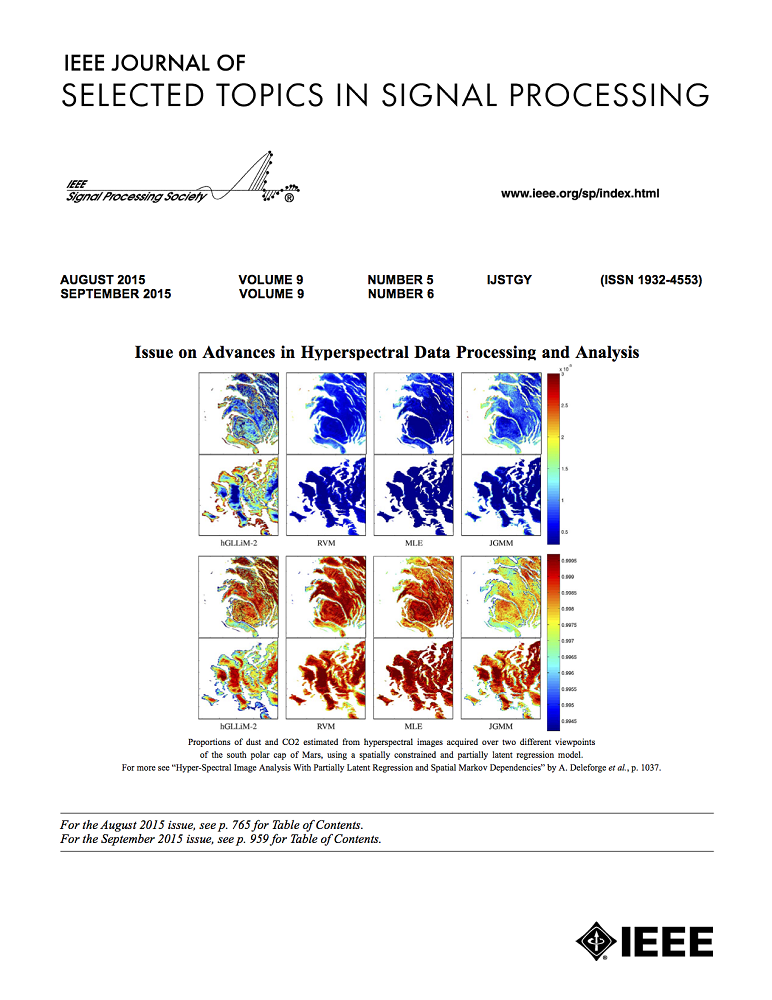具有速率分裂多址的超大型天线阵列系统的联邦学习辅助预测波束形成
IF 8.7
1区 工程技术
Q1 ENGINEERING, ELECTRICAL & ELECTRONIC
IEEE Journal of Selected Topics in Signal Processing
Pub Date : 2025-01-24
DOI:10.1109/JSTSP.2025.3532040
引用次数: 0
摘要
由于用户移动性和反馈/处理延迟,在超大规模天线阵列(ELAA)系统中,在发射机(CSIT)上实现完美的信道状态信息通常是不可行的。这将导致严重的多用户干扰。因此,如何有效和高效地管理部分/历史CSIT的干扰是实施ELAA的最重要挑战之一。在本文中,我们为ELAA系统提出了一个联邦学习(FL)辅助的预测波束形成框架来解决这一挑战。具体地说,我们引入了速率分割多址(RSMA)来放松对不完美CSIT的敏感性,同时仍然受益于空间分辨率。此外,针对用户移动和时延导致的信道估计质量缺陷,设计了一种预测波束形成协议,对预编码器设计进行了优化。为了计算波束形成器,我们首先提出了一种轻量级的贴片混合方法,将历史CSIT数据样本分成更小的可管理的部分。然后,我们提出了一种基于fl的训练方法,可以并行处理这些CSI片段,从而加快了训练过程。仿真结果表明了所提出的fl辅助预测波束形成框架的有效性和有效性,为ELAA的实际实现奠定了基础。本文章由计算机程序翻译,如有差异,请以英文原文为准。
Federated Learning-Assisted Predictive Beamforming for Extremely Large-Scale Antenna Array Systems With Rate-Splitting Multiple Access
Achieving perfect Channel State Information at the Transmitter (CSIT) is often infeasible in Extremely Large-scale Antenna Array (ELAA) systems due to user mobility and feedback/processing delay. This results in severe multi-user interference. Therefore, how to effectively and efficiently manage interference with partial/historical CSIT is one of the most important challenges for implementing ELAA. In this paper, we propose a Federated Learning (FL)-assisted predictive beamforming framework for ELAA systems to address this challenge. Specifically, we introduce Rate-Splitting Multiple Access (RSMA) to relax the sensitivity to imperfect CSIT while still benefiting from the spatial resolution. Moreover, a predictive beamforming protocol is designed to optimize the precoder design under the imperfections in the channel estimate quality originating from user mobility and latency. To calculate the beamformers, we first propose a lightweight patch-mixing approach to split the historical CSIT data samples into smaller manageable segments. Then, we propose an FL-based training method that enables parallel processing of these CSI segments, thereby accelerating the training process. Simulation results show the effectiveness and efficacy of the proposed FL-assisted predictive beamforming framework, which paves the way for real-world implementation of ELAA.
求助全文
通过发布文献求助,成功后即可免费获取论文全文。
去求助
来源期刊

IEEE Journal of Selected Topics in Signal Processing
工程技术-工程:电子与电气
CiteScore
19.00
自引率
1.30%
发文量
135
审稿时长
3 months
期刊介绍:
The IEEE Journal of Selected Topics in Signal Processing (JSTSP) focuses on the Field of Interest of the IEEE Signal Processing Society, which encompasses the theory and application of various signal processing techniques. These techniques include filtering, coding, transmitting, estimating, detecting, analyzing, recognizing, synthesizing, recording, and reproducing signals using digital or analog devices. The term "signal" covers a wide range of data types, including audio, video, speech, image, communication, geophysical, sonar, radar, medical, musical, and others.
The journal format allows for in-depth exploration of signal processing topics, enabling the Society to cover both established and emerging areas. This includes interdisciplinary fields such as biomedical engineering and language processing, as well as areas not traditionally associated with engineering.
 求助内容:
求助内容: 应助结果提醒方式:
应助结果提醒方式:


